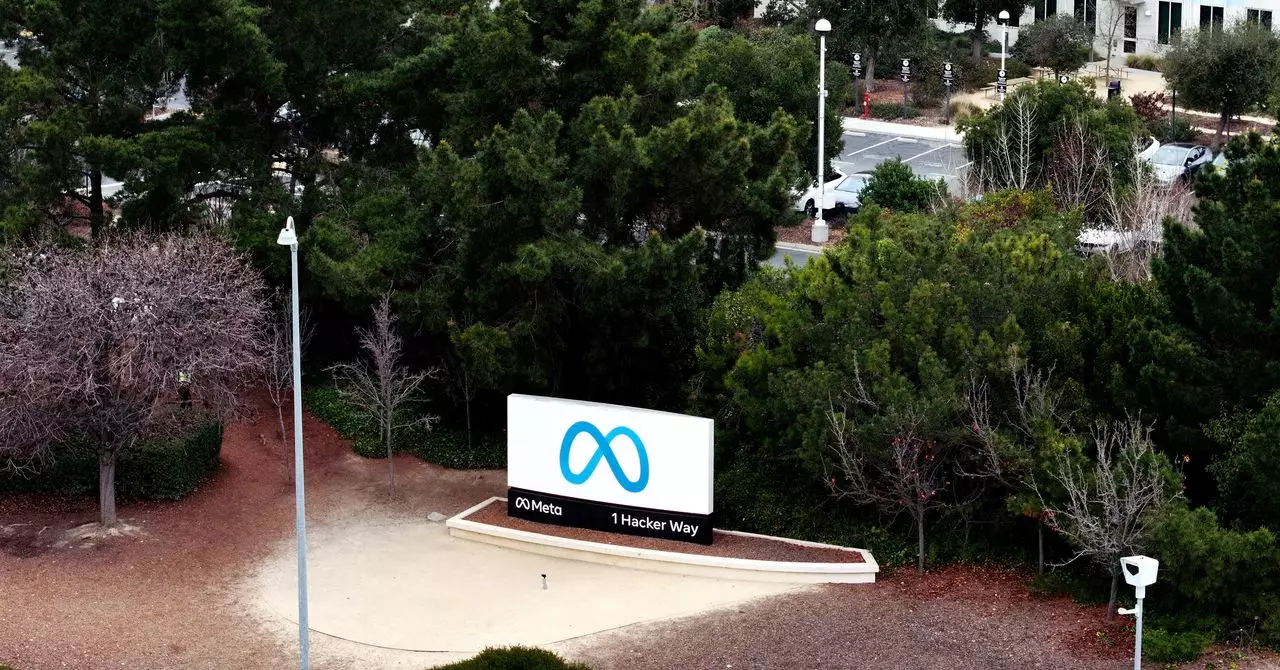In a bold move that has ignited discussions worldwide, Meta, the tech juggernaut behind Facebook and Instagram, revealed in January an overhaul of its content moderation policies. This transformation seems to prioritize “free expression” over stringent content control, thereby potentially reshaping the social media landscape as we know it. The implications of this shift are profound—not merely for user engagement, but for the societal discourse at large.
Through its quarterly Community Standards Enforcement Report, released recently, Meta disclosed a substantial decrease in the number of content removals across its platforms. This dip, which saw an impressive 1.6 billion items removed in the first quarter of the year versus the nearly 2.4 billion in the previous quarter, raises crucial questions about the balance between safeguarding user expression and maintaining community standards. It’s a complex juggle, one that could redefine how users interact with online platforms moving forward.
A New Era of User Experience
Mark Zuckerberg’s assertion that prior moderation standards were “out of touch with mainstream discourse” embodies a significant pivot in Meta’s strategy. By reducing the frequency of removals—especially in categories like spam, child endangerment, and hate speech—Meta seems to be suggesting that the voice of the individual can no longer be stifled by an overly zealous regulatory framework. Critics of content moderation have long argued that platforms often err on the side of caution, stifling genuine discussions and limiting diverse perspectives.
While the stats are indeed promising, with a reported reduction of around 50 percent in the removal of posts categorized as spam and a 29 percent decrease in hate speech violations, one must analyse whether this leniency is truly beneficial. Are we – in the quest for unrestricted expression – risking an uptick in harmful rhetoric? The findings reveal a considerable reduction in user appeals and restored content, hinting at fewer enforcement errors on Meta’s part, which, although a net positive, also signals a possible relaxation of safeguards against genuinely harmful material.
The Automated Dilemma
A focal point within this conversation is Meta’s diminishing reliance on automated moderation systems. The company’s acknowledgment that automated tools have high error rates is a transparent admission of the pitfalls inherent in machine learning solutions. Although automated removals of hate speech remained remarkably high at 97.4 percent, the marginal reduction raises eyebrows about the effectiveness and accuracy of these systems.
Meta has transitioned toward more human-centric moderation approaches, but the idea of swapping out machines for human judgment raises its own set of complications. While one can empathize with the reaction against wrongful removals, there is a definite danger in setting the bar lower for what constitutes acceptable discourse—especially as we enter a politically charged era with significant online polarization.
Free Expression vs. Accountability
At the crux of Meta’s new approach lies a central tension: the conflict between fostering free expression and implementing accountability. By relaxing rules around language that can be construed as hateful or discriminatory, there’s a real risk that these platforms could become breeding grounds for harmful ideologies. The ease with which discriminatory rhetoric can permeate social media spaces complicates the nuanced balance that Meta seeks to achieve.
Despite Meta’s aim of not exposing users to more offensive content, the reality of social media is that it often functions as a double-edged sword. An abundance of unchecked expression could potentially lead to environments rife with hostility, possibly dissuading users from engaging in meaningful dialogues altogether. In some sense, the question Meta faces is whether it is truly liberating users or simply shifting the burden of moderation to its community—whereby users may find themselves navigating a murky ethical landscape.
Future Implications for Social Discourse
The roadmap that Meta lays out will likely set precedents affecting not only its platforms but the wider online ecosystem. With its decision to loosen content rules just as a critical shift in political landscapes is underway, the company is navigating uncharted waters. The impact of these changes will unfold in real-time, revealing whether they invite richer, more authentic conversations or incite damaging rhetoric that spills over into other facets of society.
As we watch this transformation unfold, the stakes are palpable. The challenge lies in whether a company with such immense influence can responsibly foster an environment that enhances free expression while also upholding standards that protect its users from potential harm.

